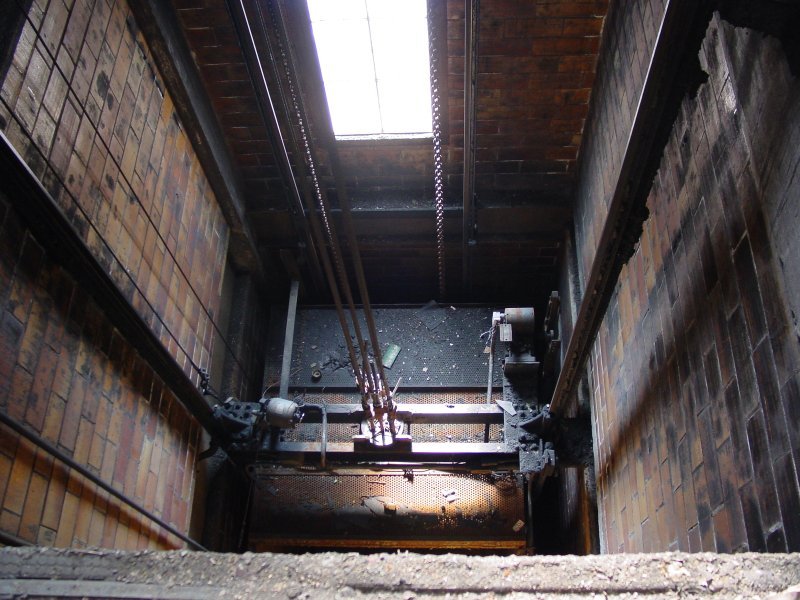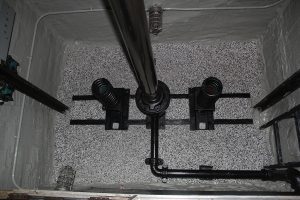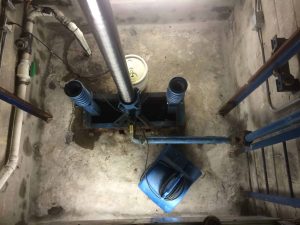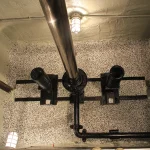Elevator Waterproofing: Ensuring Safety and Longevity
Elevator Waterproofing: Ensuring Safety and Longevity
Elevators play a vital role in modern buildings, providing convenience and accessibility to occupants. However, many building owners and managers often overlook an important aspect of elevator maintenance: waterproofing. Elevator shafts and pits are susceptible to water infiltration, which can lead to significant safety hazards and costly repairs. In this article, we will explore the importance of elevator waterproofing, the common causes of water damage, and effective solutions to ensure the safety and longevity of your elevator system.
The Significance of Elevator Waterproofing
Elevator waterproofing is a critical component of building maintenance that is often underestimated. Elevator shafts and pits are susceptible to water intrusion due to various factors, including heavy rainfall, groundwater seepage, and plumbing leaks. Failing to address these issues can result in a range of problems, from elevator malfunction to structural damage and even safety hazards for occupants.
Common Causes of Water Damage in Elevator Shafts and Pits
Rainwater Infiltration:
- Elevator shafts and pits are exposed to the elements, making them vulnerable to rainwater infiltration. When water penetrates through cracks or gaps in the elevator shaft, it can damage the elevator’s mechanical components and electrical systems, leading to costly repairs and downtime.
Groundwater Seepage:
- Buildings located in areas with a high water table or poor drainage systems may experience groundwater seepage into the elevator pit. This continuous moisture intrusion can cause corrosion, rust, and degradation of elevator components, compromising their structural integrity.
Plumbing Leaks:
- Leaks from nearby plumbing systems can introduce water into the elevator shafts and pits. These leaks may be subtle and go unnoticed until they cause significant damage to the elevator machinery or electrical systems.
Humidity and Condensation:
- Elevator pits can also be affected by high humidity levels, leading to condensation on elevator components. Over time, this moisture can contribute to rust and corrosion, potentially causing elevator malfunctions.
The Consequences of Neglecting Elevator Waterproofing
Safety Hazards:
- Water infiltration in elevator shafts and pits can compromise the safety of passengers and elevator operators. It can lead to electrical malfunctions, slippery surfaces, and even short circuits, posing a serious risk to those using the elevator.
Downtime and Costly Repairs:
- When water damage occurs, elevators often need to be shut down for repairs, resulting in inconvenience for building occupants and potentially lost revenue for businesses. Repairing or replacing damaged elevator components can also be expensive.
Reduced Lifespan of Elevator Systems:
- Continuous exposure to moisture can significantly reduce the lifespan of elevator components. This means more frequent maintenance and replacement of parts, which can strain building budgets over time.
Effective Elevator Waterproofing Solutions
Elevator Pit Waterproofing:
- Elevator pits are particularly vulnerable to water intrusion. Waterproofing the pit involves applying waterproof coatings and sealants to the pit walls and floor. Additionally, sump pumps and drainage systems can be installed to manage water in the pit effectively.
Shaft Waterproofing:
- To protect elevator shafts from rainwater infiltration, waterproof membranes or coatings can be applied to the exterior of the shaft walls. Properly sealed shaft doors and vents can also prevent water from entering.
Regular Maintenance:
- Regular maintenance of elevator systems is essential to identify and address potential water damage early. This includes inspecting for leaks, corrosion, and rust, as well as cleaning and lubricating components to prevent moisture-related issues.
Proper Drainage Systems:
- Installing an effective drainage system around the elevator pit and shaft can help divert water away from vulnerable areas. French drains, weeping tiles, and sump pumps are common solutions for managing groundwater.
Sealants and Coatings:
- Sealants and coatings designed for elevator waterproofing can be applied to vulnerable surfaces to create a protective barrier against moisture. These products are engineered to withstand the harsh conditions in elevator pits and shafts.
Waterproofing Experts:
- Hiring professionals with expertise in elevator waterproofing is crucial for ensuring the effectiveness of the chosen solutions. These experts can assess the specific needs of your elevator system, identify potential problem areas, and recommend tailored waterproofing solutions.
Elevator waterproofing is a critical aspect of building maintenance that should not be overlooked. Water damage in elevator shafts and pits can lead to safety hazards, costly repairs, and reduced longevity of elevator systems. By addressing the common causes of water damage, implementing effective waterproofing solutions, and conducting regular maintenance, building owners and managers can ensure the safety and reliability of their elevators while prolonging their lifespan. Elevators play a central role in modern buildings, and safeguarding them against water damage is essential for the safety and convenience of occupants.
Contact the Professionals at Select Elevator Waterproofing Today! 732-410-7007






